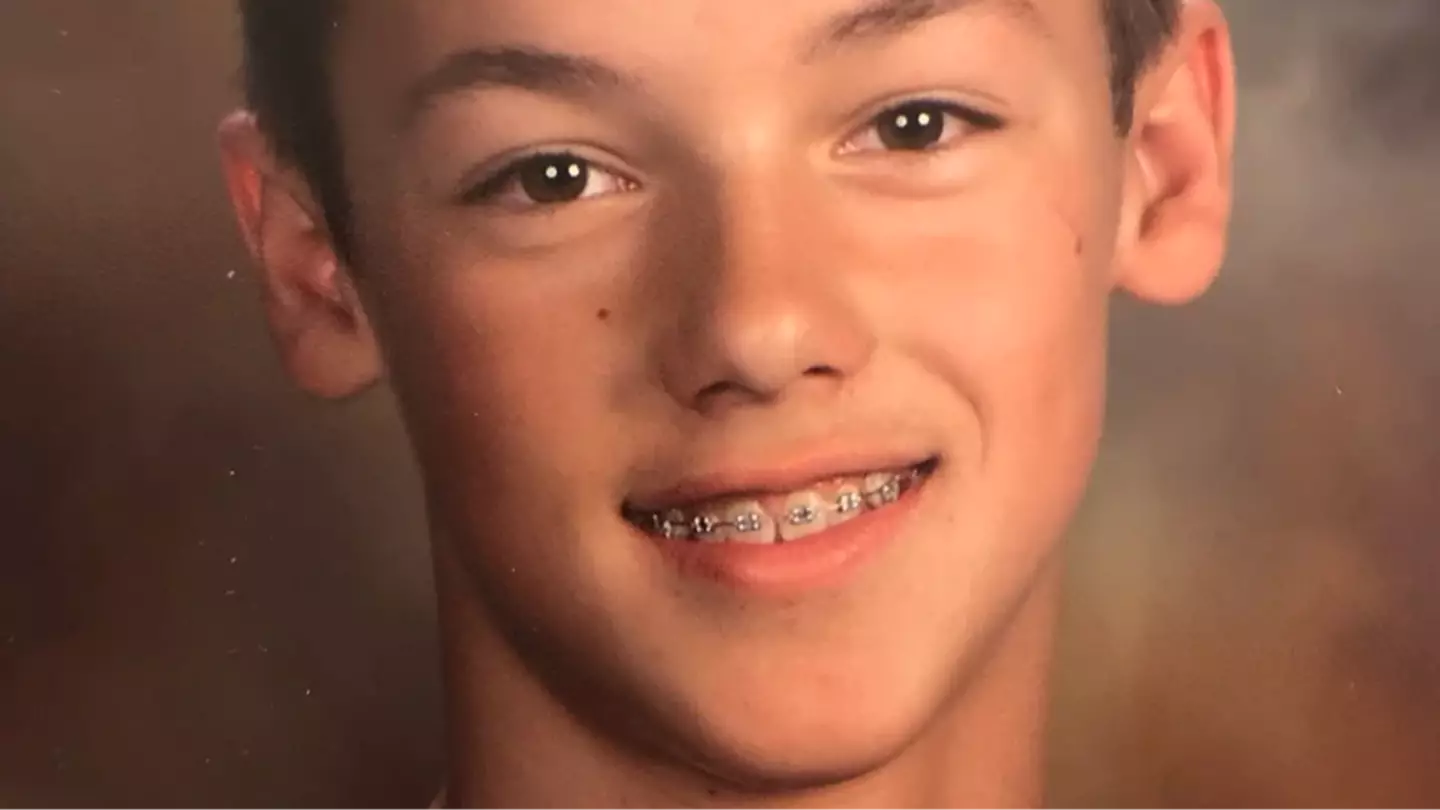
The mom of a boy who died less than a year of being diagnosed with a deadly disease has spoken out about how they knew something wasn’t right.
Brody Huber was just 13 when he began to display behavior that was out of the norm for him.
Adventurous and rarely one to make a fuss over illnesses, Brody was the family’s ‘golden boy’.
But in June 2020, things took a turn.
Advert
Tina Porter, Brody’s mother, shared how over Covid-19 lockdown, Brody had grown several inches, and when he began to complain of pain, it was easy to believe it could have been caused by his growth spurt.
But when he stopped acting like himself, they knew to get it checked out.
Tina told the Daily Mail 'he never once complained' about being sick or in pain, but leading up to his planned trip in June, she began to notice he was struggling.

The active teen had slowed down, refused to go biking with his older brother so he could nap, and then left for his trip.
“He was just this bill of health,” said Tina. “I just had this weird feeling.”
During his camping adventure, Brody chose to cut it short due to a headache that just wouldn’t leave.
While a headache is nothing out of the ordinary, it wouldn’t leave and Brody wouldn’t normally have left a trip early for something minor.
So, to make sure they were covering their basis, Tina and her husband Jeff Huber, asked doctors to perform an MRI of Brody's brain.
Sadly, the parents didn’t expect anything to come from it but were floored when images revealed a rare and aggressive cancerous brain tumor.
Doctors urged Tina to bring Brody to the Children's Hospital Colorado in Aurora, and as they were leaving their home, Brody had to be assisted through the door.
Tina said it was her lightbulb moment of realising that the tumor was real and that this was happening to her son.
The MRI had showed 'a pretty significant tumor' wrapped around Brody's thalamus, the part of the brain that controls motor function.
Two days later, a biopsy provided the family with a horrible answer to what the tumor was: a Diffuse midline glioma, which is an extremely aggressive brain tumor common in children.
Once a person is diagnosed with an inoperable DGM, they typically pass away within a year, as per the American Brain Tumor Association, with 99 percent of patients dying sometimes within five years maximum.
For Brody, his condition gave him six to nine months left to live.

The family tried everything they could to help, such as undergoing six weeks of radiation, meditation, acupuncture, massage and Reiki, and having Brody accepted into a clinical trial at the Vitanza Lab at Seattle Children's Hospital that would inject medications directly into his head via an Ommaya reservoir.
While the trial has seen success in doubling the lifespan of children with DMG, Brody’s next brain scan showed that his cancer had spread to the rest of his brain, and he could no longer participate.
Just one month later, a week before the trial began, Brody passed away in March 2021.
According to Tina, when Brody found out about his cancer spreading, he told her: “I really thought I had it, Mom.”
Brody's family set up the Brody Huber Foundation after his death to raise money for the Vitanza Lab at Seattle Children's Hospital, so that more children could benefit from the trials and treatment.
So far, they have raised $85,000 to fund the Vitanza Lab's research, and hope to send another $50,000 on November 21, 2025, which would have been Brody's 19th birthday.
If you have experienced a bereavement and would like to speak with someone in confidence, contact GrieveWell on (734) 975-0238, or email [email protected].
